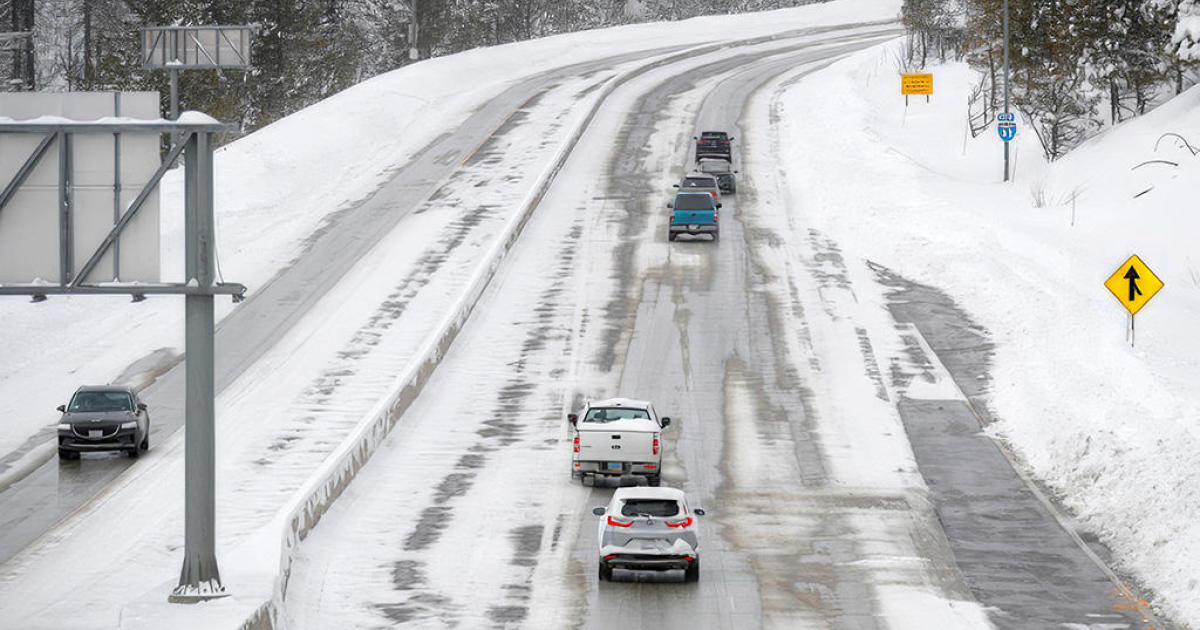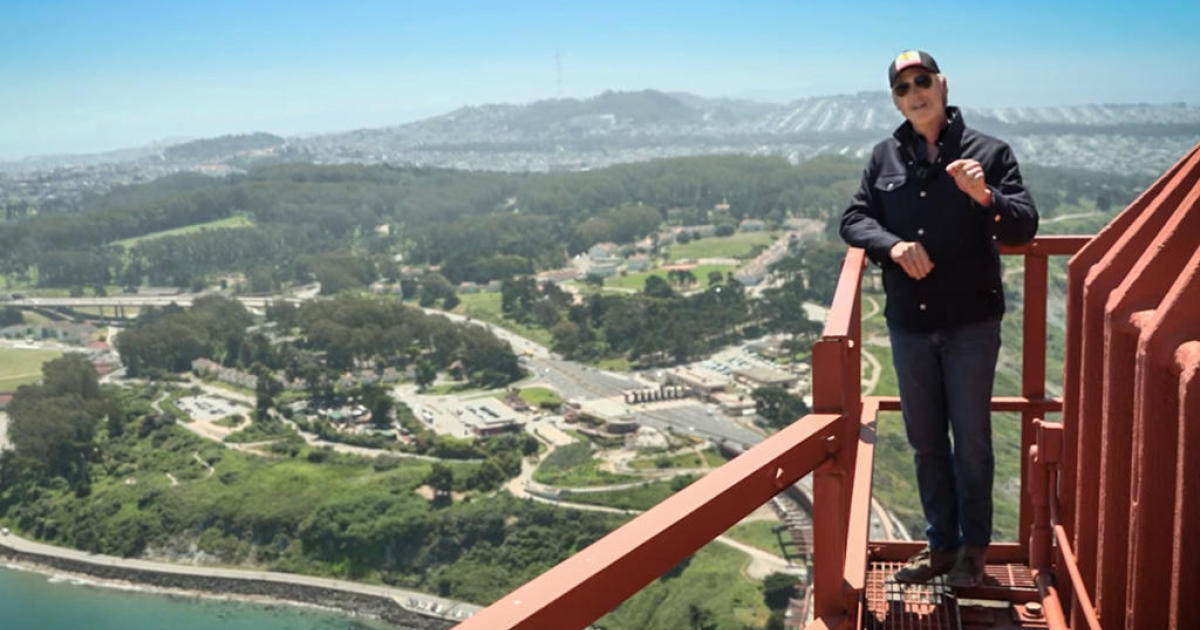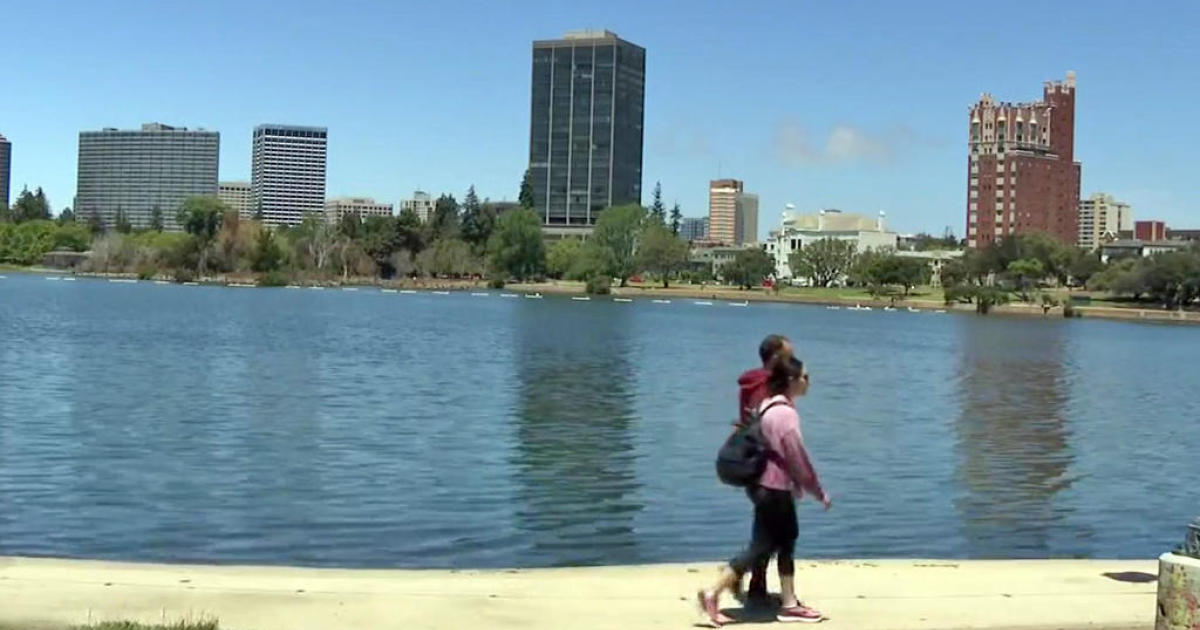West Coast Drought Producing 'Unprecedented' Lethal Conditions For Salmon, Trout
SAN FRANCISCO (CBS/AP) -- Drought and record hot weather are producing lethal conditions for salmon and trout in rivers across the West.
A recent survey released Wednesday of the lower reaches of 54 rivers in Oregon, California and Washington by the conservation group Wild Fish Conservancy showed nearly three-quarters had temperatures higher than 70 degrees, considered potentially deadly for salmon and trout.
Low river flows from the record low winter snowpack, which normally feeds rivers through the summer, combined with record hot weather have created a "perfect storm" of bad conditions for salmon and trout, said U.S. Fish and Wildlife Service supervisory fisheries biologist Rich Johnson.
"It's unprecedented, I'd say," Johnson said.
Oregon Climate Center Associate Director Kathie Dello says the entire West Coast saw record low snowpack last winter, leading to low rivers this summer. All three states had record high temperatures for June, with Oregon breaking the record by 3 degrees, and the three-month outlook from the National Oceanic and Atmospheric Administration is for continued warmer and drier-than-normal weather made worse by the ocean-warming condition known as El Nino, she added.
"This is the worst case scenario playing out right now, a warm winter and then a warm and dry summer," she said.
The Willamette River saw scores of dead salmon in June.
This week, state biologists examined about 50 dead sockeye salmon in the mouth of the Deschutes River. State fisheries biologist Rod French said they appeared to have been infected with a gill rot disease associated with warm water, and had probably left the warm waters of the Columbia River in search of cooler water.
In California, inland fisheries manager Roger Bloom says they are considering emergency fishing closures on several rivers so that fish weakened by the warm water do not die from being played by an angler, even if they are released. They include the lower Merced, the American and the Klamath.
In Washington, two federal fish hatcheries in the Columbia Gorge released 6 million juvenile salmon two weeks early in the Columbia River, in hopes they would have a better chance of reaching the ocean before temperatures got even warmer, said Johnson.
"It's just a perfect storm of bad weather conditions for salmon," he said. "Pray for rain and snow."
River flows are so low, the Washington Department of Fish and Wildlife is sending out crews to clear out impromptu dams people build with rocks to create a pool to cool off in, so the salmon can swim upstream to spawn, said department drought coordinator Teresa Scott. Rivers are at levels normally not expected until September, and no one knows if they will drop even further.
"This is such a huge magnitude compared to previous droughts," she said. "Records available from before don't come close to preparing us for what we are encountering this year."
In Oregon, deputy fisheries chief Bruce McIntosh says they have imposed closures around cool water areas where salmon seek refuge at the mouths of tributaries flowing into the lower Umpqua River, but he did do not anticipate any more closures unless things get worse.
"Certainly we've had significant droughts in the past, such as the late 70's," he said. "But the challenge this year has been not only are there drought conditions, we're having August temperatures in June. That combination we really have not seen before."
Liz Hamilton of the Northwest Sportfishing Association, said closures are not needed, because when temperatures get too warm, fish go off the bite, and anglers quit fishing anyway.
"It as 2001 or 2002 and the Columbia got really hot in the fall," she recalled. "There were fish everywhere. You had a better chance of one jumping in the boat than of biting. It's one of those things about fishing. If people are not catching, they are not spreading the word to go, and less and less people go."
© Copyright 2015 The Associated Press. All Rights Reserved. This material may not be published, broadcast, rewritten or redistributed



